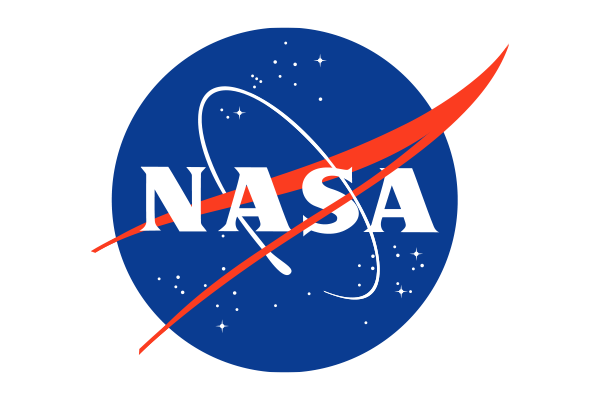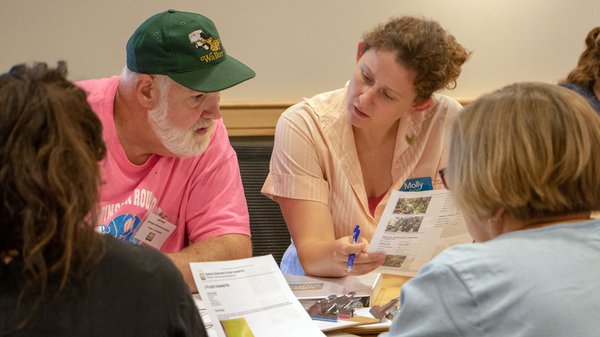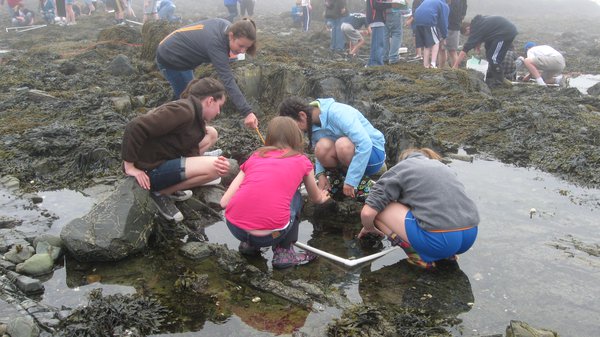Extending LabVenture into the Classroom
Bringing the LabVenture experience into classrooms throughout Maine
A key tenet of the Real World, Real Science project is to strengthen the connection between formal and informal learning environments. In tandem with the redevelopment of LabVenture, GMRI and the Education Development Center have created a suite of classroom and teacher professional development activities to extend the reach of STEM learning opportunities throughout the state.
Project Goals:
- Design and develop a digital Field Notebook that records key LabVenture learnings that students can access at home or in the classroom.
- Pilot innovative classroom activities that focus on climate and data by combining local, relevant science with NASA data resources.
- Give teachers the tools, training, and resources they need to implement new and immersive STEM classroom activities.
Real World, Real Science aims to create a model for how to strengthen connections between informal and formal learning environments. LabVenture creates a strong jumping-off point for standards-aligned learning in the classroom, and we work to support both students and teachers with technology, tools, and content.
A key bridge between these environments is the LabVenture Field Notebook, a web-based collection of assets and reflections created by students during their LabVenture visit. Throughout the LabVenture program, students have the opportunity to save and annotate their work and are prompted to articulate key observations and conclusions. All of their work, along with video and photo content from the experience, is available to the student teams back in the classroom. Since its launch for the 2019-2020 school year, it's become clear that this work is a valuable tool for teachers who want to extend student explorations of data and climate literacy beyond their time at GMRI. Classroom modules that touch on lessons learned at LabVenture may often occur long before or after students experience LabVenture, but the Field Notebook fills this gap and keeps the LabVenture experience fresh for students and teachers alike.
Education Development Center, a Real World, Real Science partner, developed a suite of classroom activities to extend the LabVenture experience into fifth and sixth grade classrooms. Using authentic data from NASA, students can engage and learn from compelling real world stories about how Earth’s changing climate impacts Maine's ecosystems. First piloted during the 2018-2019 school year, we continue to revise and recreate these modules to incorporate the most current and relevant data and storylines. The suite of activities includes a LabVenture recap designed to solidify learning during the LabVenture experience itself, an introduction to working with representations of change-over-time data, and multiple ecosystem modules focused on topics such as ice-out dates and ticks and Lyme disease. More information on these activities can be found at GMRI's Education Curriculum Platform.
Teacher professional learning supports are critical for helping teachers maximize student outcomes as they bring their students to LabVenture and then back to the classroom. GMRI and EDC have devised a summer teacher institute that introduces teachers to the data and climate literacy goals of the new LabVenture experience. The first institute took place in August 2019 and we expect it to be an annual event. In this event, teachers participate in LabVenture from the student standpoint, engage in personal and small group reflections, and receive an introduction to the classroom activities along with hands-on exploration of the technology toolset used. Throughout the school year, we also support teachers with virtual meetups to answer questions and facilitate peer exchange as they tackle challenges that come up in the classroom.
-
Additional resources
Explore the different ways we work to support both students and teachers with technology, tools, and content.
-
![Educator Professional Development]() Educator Professional Development
Educator Professional Development
-
![Learning Resource Hub]() Learning Resource Hub
Learning Resource Hub
Project Sponsor

This material is based upon work supported by NASA under grant number NNX16AB94A. Any opinions, findings, and conclusions or recommendations expressed in this material are those of the author(s) and do not necessarily reflect the view of the National Aeronautics and Space Administration (NASA).
Project Partners
Read More
-
![Teachers, Students Engaging in Citizen Science]()
Teachers, Students Engaging in Citizen Science
Whether in our lab, in the classroom, or out in the field, our Education team is working with students and teachers around the state to …
Perspectives
-
![New Education Collaboration]()
New Education Collaboration
In November, members of our education staff joined the newly formed Climate Change Education Collaborative for their second biannual gathering.
Tidings
-
![Education Team Introduces Home Delivery]()
Education Team Introduces Home Delivery
This spring, our Education team introduced Home Delivery, a menu of online learning experiences adapted from our existing education programs.
Announcements
-
![Recognizing Top Teachers]()
Recognizing Top Teachers
We are connected to so many amazing educators doing great work around the state, and we love recognizing them when we get the chance. This …
Announcements





